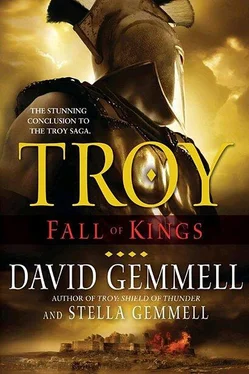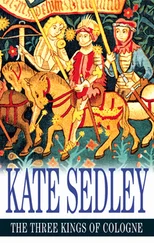Stella Gemmell - Fall of Kings
Здесь есть возможность читать онлайн «Stella Gemmell - Fall of Kings» весь текст электронной книги совершенно бесплатно (целиком полную версию без сокращений). В некоторых случаях можно слушать аудио, скачать через торрент в формате fb2 и присутствует краткое содержание. Год выпуска: 2011, Жанр: Исторические приключения, на английском языке. Описание произведения, (предисловие) а так же отзывы посетителей доступны на портале библиотеки ЛибКат.
- Название:Fall of Kings
- Автор:
- Жанр:
- Год:2011
- ISBN:нет данных
- Рейтинг книги:4 / 5. Голосов: 1
-
Избранное:Добавить в избранное
- Отзывы:
-
Ваша оценка:
- 80
- 1
- 2
- 3
- 4
- 5
Fall of Kings: краткое содержание, описание и аннотация
Предлагаем к чтению аннотацию, описание, краткое содержание или предисловие (зависит от того, что написал сам автор книги «Fall of Kings»). Если вы не нашли необходимую информацию о книге — напишите в комментариях, мы постараемся отыскать её.
Fall of Kings — читать онлайн бесплатно полную книгу (весь текст) целиком
Ниже представлен текст книги, разбитый по страницам. Система сохранения места последней прочитанной страницы, позволяет с удобством читать онлайн бесплатно книгу «Fall of Kings», без необходимости каждый раз заново искать на чём Вы остановились. Поставьте закладку, и сможете в любой момент перейти на страницу, на которой закончили чтение.
Интервал:
Закладка:
Fall of Kings
David & Stella Gemmell
“Beware the wooden horse, Agamemnon King, Battle King, Conqueror, for it will roar to the skies on wings of thunder and herald the death of nations.”
“A pox on riddles, priest!” replied the king. “Tell me of Troy and of victory.”
“The last king of the Golden City will be Mykene. The gods have spoken.”
—THE ORACLE OF THE CAVE OF WINGSPROLOGUE
A bright moon shone low in the sky above the isle of Imbros, its silver light bathing the rocky shoreline and the Mykene war fleet beached there. The curve of the bay was filled with ships: some fifty war galleys and more than a hundred barges drawn up so tightly that there was not a handbreadth between them. On the beach the Mykene army sat around scores of cookfires, eight thousand soldiers, some preparing their weapons, sharpening swords, or burnishing shields and others playing dice or dozing by the flickering fires. The beach was so crowded, many of the sailors had remained on their ships rather than jostle for a strip of rocky ground on which to lay their blankets.
Agamemnon, king of the Mykene and warlord of the western armies, stood outside his canopied tent, his gaunt frame wrapped in a long black cloak, his cold eyes staring out to sea toward the east, where the sky glowed red.
The fortress of Dardanos was burning.
With luck and the blessing of the war god Ares, the mission had been totally successful. Helikaon’s wife and son would be lying dead in the blazing fortress, and Helikaon himself would know the full horror of despair.
A cold wind blew across the beach. Agamemnon drew his cloak around his angular shoulders and turned his gaze to the men laboring to build an altar some distance away. They had been gathering large stones for most of the day. The round-shouldered priest Atheos was directing them, his thin, reedy voice sounding as shrill as that of a petulant seagull. “No, no, that stone is too small for the outside. Wedge it closer to the center!”
Agamemnon stared at the priest. The man had no talent for prophecy, and that suited the king. He could be relied on to say whatever Agamemnon wished him to say. The problem with most seers, Agamemnon knew, was that their prophecies became self-fulfilling. Tell an army that the portents were dark and gloomy, and men would go into battle ready to break and run at the first reverse. Tell them victory was assured and that Zeus himself had blessed them, and they would fight like lions.
On occasions, of course, a battle would be lost. It was unavoidable. All that was needed then was someone to blame. That was where idiots like Atheos were so useful. Talentless and flawed, Atheos had secrets. At least he thought he had. He liked to torment and kill children. Should any of his “prophecies” fail, Agamemnon would expose him to the army and have him put to death, saying the gods had cursed the battle because of the man’s evil.
Agamemnon shivered. If only all seers were as talentless and malleable as Atheos. Kings should not be subject to the whims of prophecy. Their destinies should be chained entirely to their will and their abilities. What glory was there in a victory ordained by capricious gods? Agamemnon’s mood darkened as he recalled his last visit to the Cave of Wings.
Damn the priests and their noxious narcotics! Damn them and their riddles! One day he would have them all killed and replaced with men he could trust—fools like Atheos. But not yet. The priests of the cave were highly regarded by the Mykene nobility and by the people, and in the middle of a great war it would be foolish to risk wiping them out. And he only had to endure the Time of Prophecy once every four years.
The last time had been just before they had sailed to Imbros. Agamemnon and his chosen Followers had gathered at the Cave of Wings on the hills outside the Lion City. Then, as two centuries of ritual demanded, the king of the Mykene had entered the torchlit cave. The air had been thick with smoke from the opiate fire, and Agamemnon had kept his breathing shallow. Even so bright colors had swirled before his eyes, and he had grown dizzy.
The dying priest had drifted in and out of consciousness, and when he had spoken, the sentences had been broken and confused. Then his eyes had opened, his bony fingers circling the king’s wrist. “Beware the wooden horse, Agamemnon King, Battle King, Conqueror, for it will roar to the skies on wings of thunder and herald the death of nations.”
“A pox on riddles, priest!” the king had replied. “Tell me of Troy and of victory.”
“The last king of the Golden City will be Mykene. The gods have spoken.”
And there it was. The fulfillment of dreams, the promise of destiny. Though the priest had yet to succumb to the hemlock and was struggling to say more, Agamemnon pulled back from him and fled from the cave. He had heard all he wanted.
Troy would fall, and with it all the riches of Priam’s treasury. The relief had been colossal. Though few were aware of it, the Mykene empire was bleeding to death, its wealth leached away to finance armies of conquest. Each successful invasion had only exacerbated the problem, for with greater lands to occupy and hold, greater amounts of gold were needed to train fresh soldiers. Mykene gold mines, for so long the bedrock of military expansion, had failed. Agamemnon had been left with only two options: to reduce the size of the army, which inevitably would lead to insurrections, revolts, and civil war, or to expand Mykene influence into the rich lands of the east.
For such a campaign to succeed, Troy had to fall. With its limitless treasury under his control, Mykene domination could be guaranteed for generations.
It was rare for Agamemnon to feel content, but at that moment, under the bright stars of Imbros, he luxuriated in the feeling. Gold looted from Thraki had paid for the invasion fleets, the fortress of Dardanos had been taken, and Troy would follow.
Even the defeat at Carpea could be used to advantage. Hektor and his Trojan Horse had killed his ally, the idiot Peleus, and that had left the young warrior Achilles king of Thessaly. Inexperienced and impressionable, he would be easy to manipulate.
A brief moment of irritation cut through Agamemnon’s thoughts. Achilles was with Odysseus somewhere to the southwest. Had he heard yet of his father’s death? I should have kept him with me, Agamemnon thought. But no matter, he assured himself. When he does hear, his heart will burn with the need for vengeance, and he will return.
Hearing movement to his right, Agamemnon turned. Three soldiers in black cloaks and breastplates of burnished bronze disks approached him. One was dragging a skinny black-haired child of around ten years old. The soldiers halted before the king.
“As you ordered, Agamemnon King,” said the first, hurling the child to the stones.
“As I ordered?” Agamemnon responded, his voice low, his tone icy.
“You… you said to bring a virgin for the sacrifice, lord.”
“To sacrifice a virgin to the god Poseidon, for safe crossing and our victory,” Agamemnon said. “To send him an unsoiled young woman to please his nights. Would this little wretch please your nights?”
The soldier, a tall wide-shouldered man with a thick black beard, scratched at his chin. “No, lord, but the villagers had mostly taken to the hills. There was only old women and children. This one was the oldest child.”
Agamemnon called out to the priest. Atheos hitched up his long white robes and scurried across the sand. Pausing before Agamemnon, he held both hands over his heart and then bowed his head.
“Will this scrawny creature suffice?” the king asked. He knew the answer before he asked the question. The priest tried to hide his delight as he looked at the frightened child, but Agamemnon saw the lust shining in his eyes.
Читать дальшеИнтервал:
Закладка:
Похожие книги на «Fall of Kings»
Представляем Вашему вниманию похожие книги на «Fall of Kings» списком для выбора. Мы отобрали схожую по названию и смыслу литературу в надежде предоставить читателям больше вариантов отыскать новые, интересные, ещё непрочитанные произведения.
Обсуждение, отзывы о книге «Fall of Kings» и просто собственные мнения читателей. Оставьте ваши комментарии, напишите, что Вы думаете о произведении, его смысле или главных героях. Укажите что конкретно понравилось, а что нет, и почему Вы так считаете.












